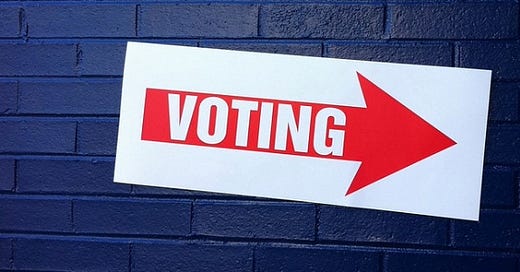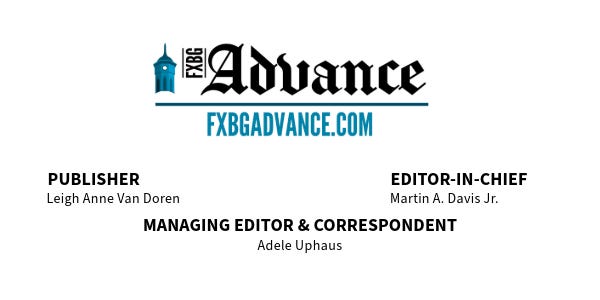ANALYSIS: What's Wrong with Polling?
Getting a read on voters has never been easy. Technology hasn't changed that, because at the end of the day, elections are decided by people, not polls.
By David S. Kerr
COMMENTATOR
Polling goes back a long way in American politics. One of the earliest and, alas, most notorious polls, was the “Literary Digest” poll of 1936. It was a telephone-based survey, and its results showed Franklin Roosevelt losing reelection to the Republican candidate Alf Landon. They were wrong. Roosevelt won reelection in a landslide.
In that day and age, and in the midst of the Great Depression, most Roosevelt voters didn’t have telephones. It taught us an early lesson in how difficult getting a snapshot of voter intentions can be.
Sure, some polls have a good track record; lots of elections have been accurately called. However, starting in the teens, polling as a forecasting tool has run into problems. The polls were off significantly in the presidential races of 2016, 2020, and in the midterms in 2022.
In 2016, Hillary Clinton was supposed to win handily. She didn’t. Former President Donald Trump did. In 2020, the polls forecast a comfortable Biden win. Instead, it was agonizingly close. In 2022, the Democrats were supposed to get trounced in the midterms. But rather than lose badly, they did surprisingly well.
Not a great record for the polls, and they may face the same challenge in 2024. That leads to the question of why? What’s wrong with polling?
One reason is that polling has gotten a lot harder to do in the 21st century. In years past, before cell phones, pollsters called prospective voters on their landline phones. Everyone had one. Pollsters asked about the voter’s preferences and got a good snapshot of the electorate’s intentions. But those days are past.
For instance, I wouldn’t know how to poll my students. They don’t have landlines, and don’t tend to answer calls on their cell phones unless they recognize the caller. This makes them virtually unreachable. Certainly, to any prospective pollster. The same goes for a lot of older voters as well. I include myself in that number. This takes a lot of people out of the sample. And skews the polling results.
Then there is another factor. Early voting. Virginia has one of the highest early voting participation rates in the country. Record numbers of voters in the Fredericksburg region have already turned out to vote in advance of election day. Factoring this into a polling sample can be problematic.
There is also the unwillingness of those being polled to honestly express their preferences. This has always been a problem for pollsters. But, perhaps more so in this election. Some may say they’re voting for Harris, but instead plan to vote Trump. Of course, that works both ways. But it complicates the life of the pollster. This year perhaps more than most.
Then there are elections for the House of Representatives. These can be trying. A good example, right here in the Fredericksburg region, is our own 7th District election for the U.S. House of Representatives. This is where Democrat Eugene Vindman is taking on Republican Derrick Anderson.
Getting a good snapshot of voter intentions in this district is virtually impossible. It's simply too spread out and too diverse politically and demographically to get a reliable sample.
Of course, given the wild and whacky way some swing districts are drawn, in Virginia and elsewhere, this challenge is not unique to the 7th.
When it comes to statewide races Virginia’s results have historically aligned fairly closely to the polls. This year the most recent polls give Harris a comfortable lead and the same goes for Senator Tim Kaine. However, there is an outlier poll. In late September, a poll by the University of Mary Washington’s Center for Leadership and Media gave Harris only a two-point lead.
The consensus nationally, based on averages of the polls of the swing states, and various statistical simulations, is that this election is too close to call. Maybe. But the science of polling has become sufficiently challenging as to make such statements open to question.
David Kerr is an adjunct professor of political science at VCU and has worked on Capitol Hill and for various federal agencies for many years.
Local Obituaries
To view local obituaries or to send a note to family and loved ones, please visit the link that follows.
Support Award-winning, Locally Focused Journalism
The FXBG Advance cuts through the talking points to deliver both incisive and informative news about the issues, people, and organizations that daily affect your life. And we do it in a multi-partisan format that has no equal in this region. Over the past year, our reporting was:
First to report on a Spotsylvania School teacher arrested for bringing drugs onto campus.
First to report on new facility fees leveled by MWHC on patient bills.
First to detail controversial traffic numbers submitted by Stafford staff on the Buc-ee’s project
Provided extensive coverage of the cellphone bans that are sweeping local school districts.
And so much more, like Clay Jones, Drew Gallagher, Hank Silverberg, and more.
For just $8 a month, you can help support top-flight journalism that puts people over policies.
Your contributions 100% support our journalists.
Help us as we continue to grow!















